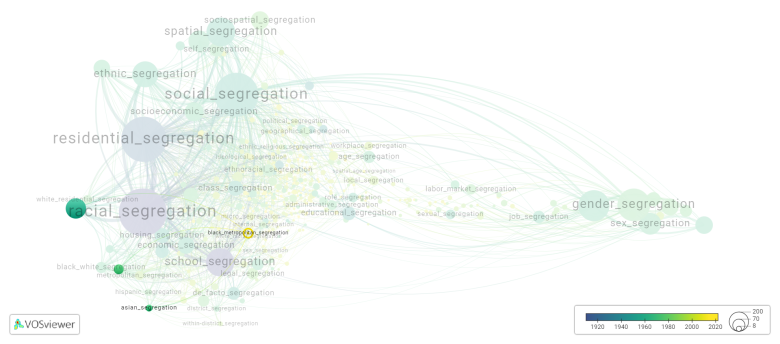Black metropolitan segregation
Date and country of first publication[1]
2022
United States
Definition
Black metropolitan segregation refers to the separation of black and white communities within urban areas, particularly in the United States. This segregation is a result of historical and ongoing systemic racism and discriminatory practices in housing, education, and employment.
Black metropolitan segregation can be observed in various ways, such as the concentration of black residents in certain neighborhoods or the lack of economic investment in predominantly black areas. This segregation can also be seen in the disparities in access to quality education, healthcare, and other resources between black and white communities.
Redlining, a discriminatory practice by which banks and lending institutions deny loans or insurance to residents in certain areas based on their racial or ethnic composition, has played a significant role in shaping black metropolitan segregation. These practices have resulted in the creation of predominantly black neighborhoods with limited economic opportunities and resources.
Despite efforts to address segregation, such as fair housing legislation, black metropolitan segregation remains prevalent in many cities. This segregation not only perpetuates racial inequality and disparities but also hinders social and economic mobility for black residents.
Efforts to combat black metropolitan segregation involve policies aimed at increasing access to affordable housing, addressing discriminatory lending practices, investing in education and job opportunities in segregated areas, and promoting fair housing practices. However, achieving true integration and dismantling the long-standing effects of segregation remains a complex and ongoing challenge.
See also
Related segregation forms
Black metropolitan segregation is frequently discussed in the literature with the following segregation forms:
racial residential segregation, black segregation, asian segregation

This visualization is based on the study The Multidisciplinary Landscape of Segregation Research.
For the complete network of interrelated segregation forms, please refer to:
References
Notes
- ↑ Date and country of first publication as informed by the Scopus database (December 2023).
Black metropolitan segregation appears in the following literature
Crowell A., Fossett M. (2022). Metropolitan racial residential segregation in the United States: A microlevel and cross context analysis of Black, Latino, and Asian segregation. Demographic Research, 46(), 217-260. Max Planck Institute for Demographic Research.https://doi.org/10.4054/DEMRES.2022.46.8
